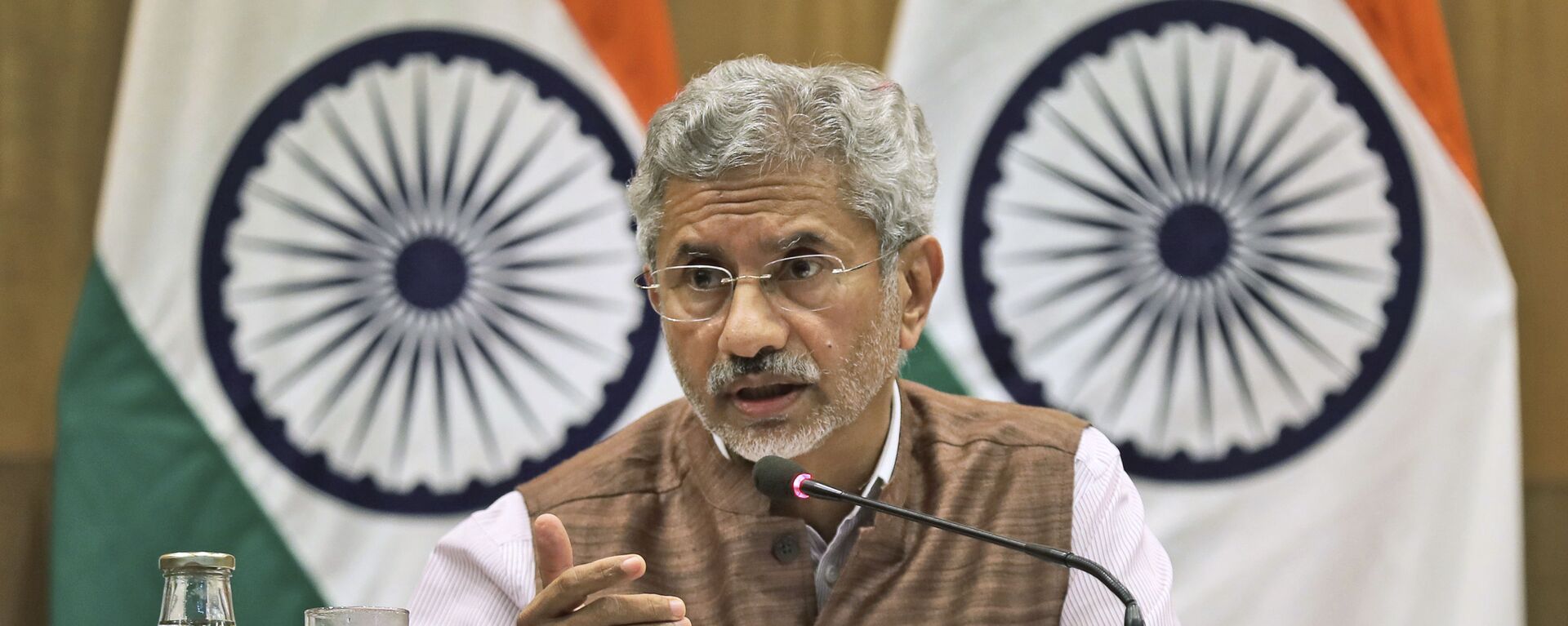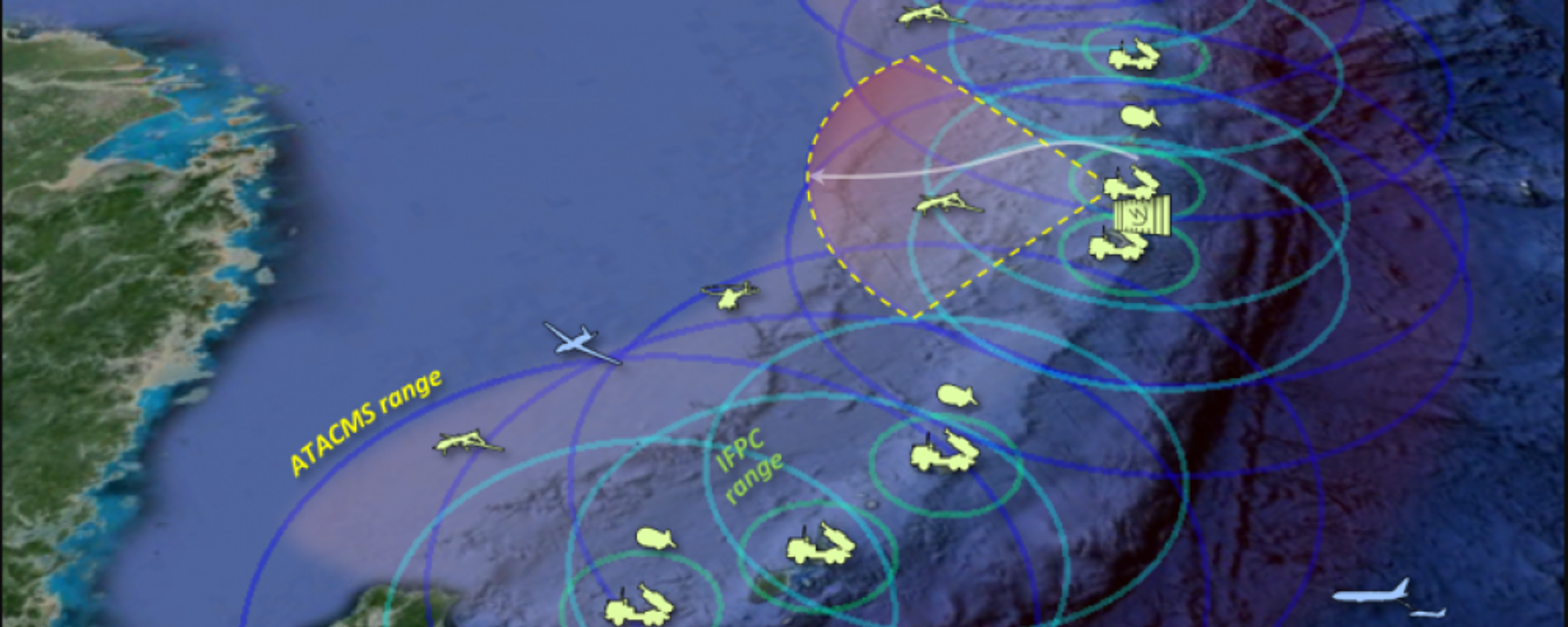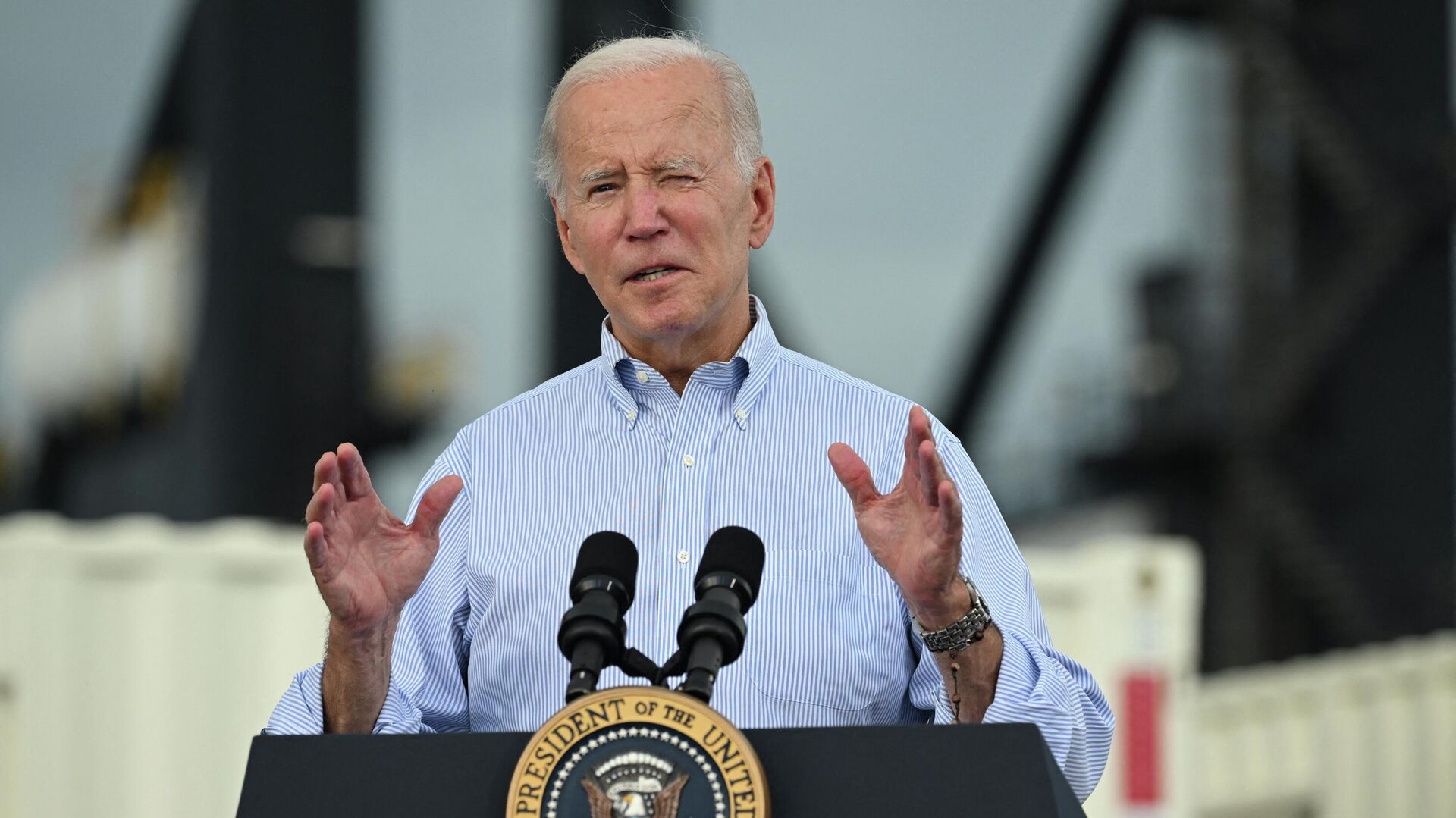https://sputnikglobe.com/20221013/bidens-national-security-strategy-to-strain-ties-with-global-south-indian-navy-veteran-says-1101803559.html
Biden's National Security Strategy to Strain Ties With Global South, Indian Navy Veteran Says
Biden's National Security Strategy to Strain Ties With Global South, Indian Navy Veteran Says
Sputnik International
The strategy document released by the Biden administration focuses on “outcompeting China” and “restraining Russia” through alliances in Europe and the... 13.10.2022, Sputnik International
2022-10-13T12:34+0000
2022-10-13T12:34+0000
2022-10-13T12:35+0000
india
joe biden
ukraine crisis
russia
food crisis
fuel prices
asean
us
china
https://cdn1.img.sputnikglobe.com/img/07e6/0a/05/1101538092_0:0:2957:1663_1920x0_80_0_0_94b5e9f1345628738d83f68535a434b9.jpg
The US will enter a “phase of strained ties” with India and other developing countries of the Global South as it implements the Biden administration’s National Security Strategy, an Indian Navy veteran has told Sputnik.The analyst likewise underlined that Russia’s role has now also become “crucial” in maintaining India’s “energy security” in view of the escalating global prices.He noted that the Biden administration has been apprehensive about Delhi charting an “independent foreign policy”, which, he said, has been evident from the “pressure” it has sought to apply over its ties with Moscow.The think-tank chief argued that the Biden administration would exert “even more pressure” on Delhi after the Modi government showed clear signs of not “fall[ing] in line”.Vasan recalled that “apprehensions” in India about Biden’s position towards Pakistan were already present since he assumed power in 2020. Biden’s predecessor Donald Trump had snapped US military funding to Pakistan over Islamabad’s alleged support for terror groups, even though Islamabad was a “major non-NATO ally” of Washington during the so-called War on Terror.India Distanced From Biden AdministrationThe Indian Navy veteran noted that New Delhi’s official position is “quite different” from the role Washington wants it to play in the region, working together to “support our shared vision of a free and open Indo-Pacific” and expanding Europeans allies' presence in Asia-Pacific, including through NATO.What's more, Washington reportedly wants its “Indo-Pacific allies to be engaged cooperatively with our European allies” in forming a united front against Russia.“Involving NATO allies in the freedom of navigation (FONOPs) exercises in the region implies that the US is looking for economic resources, besides the diplomatic capital, to strengthen the front against China,” he said.“As far as India is concerned, our policy position is against being part of any military alliance.”In this regard, India will continue to play an important role in the region because of its “geographical size, economy and growing international stature,” Vasan concluded.US Strategy to Deteriorate Global South’s Food & Security CrisesVasan also expressed concerns about the impact of Biden’s security strategy on the global food and energy shortages, due to the West “prolonging” the Ukraine crisis.Many developing countries, including India, have consistently urged for a return to dialogue to resolve the Ukraine crisis, arguing that the fallout is being particularly felt in low and middle-income nations in terms of surging commodity prices which hampered post-COVID economic recovery and increased inflation.He argued that the spillover effects of the crisis would have been on a “lesser scale” should western countries have pressed Ukraine to negotiate.The strategy document has been released against the backdrop of the US and its western allies failing to find categorical support among many countries in the Asia-Pacific on the crisis in Ukraine.A western-backed resolution on Russia at the United Nations General Assembly on Wednesday saw abstentions from 35 countries, which included not only India but also ASEAN allies such as Thailand (a treaty ally of the US) and Vietnam.Although countries such as Indonesia and the Philippines voted against Russia, both south-east Asian nations have also expressed concerns over spiraling food and energy bills caused by the crisis in Ukraine.
https://sputnikglobe.com/20221011/indian-fm-says-global-south-feeling-frustrated-with-west-for-neglecting-high-fuel--food-prices-1101715421.html
https://sputnikglobe.com/20220816/us-ramping-up-strike-capabilities-in-asia-pacific-working-on-missile-deployment-russian-military-1099648468.html
russia
china
Sputnik International
feedback@sputniknews.com
+74956456601
MIA „Rosiya Segodnya“
2022
News
en_EN
Sputnik International
feedback@sputniknews.com
+74956456601
MIA „Rosiya Segodnya“
Sputnik International
feedback@sputniknews.com
+74956456601
MIA „Rosiya Segodnya“
india, joe biden, ukraine crisis, russia, food crisis, fuel prices, asean, us, china
india, joe biden, ukraine crisis, russia, food crisis, fuel prices, asean, us, china
Biden's National Security Strategy to Strain Ties With Global South, Indian Navy Veteran Says
12:34 GMT 13.10.2022 (Updated: 12:35 GMT 13.10.2022) Exclusive
The strategy document released by the Biden administration focuses on “outcompeting China” and “restraining Russia” through alliances in Europe and the Asia-Pacific. It also calls for more coordination among US partners and allies in both regions.
The US will enter a “phase of strained ties” with India and other developing countries of the Global South as it implements the Biden administration’s
National Security Strategy, an Indian Navy veteran has told
Sputnik.
“As far as India is concerned, the primary US objective is to wean us away from Russia. But I don’t see that happening. India’s longstanding ties with Russia are in our national interest and we have been vocal about that,” said the director of the Indian think tank Chennai Centre for China Studies (C3S), Commodore (retd) Seshadri Vasan.
The analyst likewise underlined that Russia’s role has now also become “crucial” in maintaining India’s “energy security” in view of the escalating global prices.
He noted that the Biden administration has been apprehensive about Delhi charting an “independent foreign policy”, which, he said, has been evident from the “pressure” it has
sought to apply over its ties with Moscow.
The think-tank chief argued that the Biden administration would exert “even more pressure” on Delhi after the Modi government showed clear signs of not “fall[ing] in line”.
“One thing is clear. The Biden administration wants to create pressure on India through not only diplomatic and economic means but also from a security perspective by reinforcing defence ties with Pakistan,” said the former navy official, referring to Washington’s recent decision to sell $450 million of spare parts to Islamabad for its fleet of F-16 fighter jets and the controversial visit of the US ambassador in Islamabad to Pakistan-administered Kashmir this month.

11 October 2022, 12:50 GMT
Vasan recalled that “apprehensions” in India about Biden’s position towards Pakistan were already present since he assumed power in 2020. Biden’s predecessor Donald Trump had snapped US military funding to Pakistan over Islamabad’s alleged support for terror groups, even though Islamabad was a “major non-NATO ally” of Washington during the so-called War on Terror.
India Distanced From Biden Administration
The Indian Navy veteran noted that New Delhi’s official position is “quite different” from the role Washington wants it to play in the region, working together to “support our shared vision of a free and open Indo-Pacific” and expanding Europeans allies' presence in Asia-Pacific, including through NATO.
What's more, Washington reportedly wants its “Indo-Pacific allies to be engaged cooperatively with our European allies” in forming a united front against Russia.
Vasan explained that Delhi would continue to chart a foreign policy best tailored to its “interests” on not only the Russia issue but also with respect to China.
“Involving NATO allies in the freedom of navigation (FONOPs) exercises in the region implies that the US is looking for economic resources, besides the diplomatic capital, to strengthen the front against China,” he said.
“As far as India is concerned, our policy position is against being part of any military alliance.”
Vasan noted that even the “primary objectives” of the Quad grouping - which brings together India, the US, Japan and Australia - are now different from the “security-related aspects” spelled out in the official document. From its initial focus on maritime security, the four-nation grouping has now evolved into a platform for cooperation on areas such as climate change, supply chain resilience and vaccine delivery.
In this regard, India will continue to play an important role in the region because of its “geographical size, economy and growing international stature,” Vasan concluded.

16 August 2022, 11:02 GMT
US Strategy to Deteriorate Global South’s Food & Security Crises
Vasan also expressed concerns about the impact of Biden’s security strategy on the global food and energy shortages, due to the West “prolonging” the Ukraine crisis.
Many developing countries, including India, have consistently urged for a return to dialogue to resolve the Ukraine crisis, arguing that the fallout is being particularly felt in low and middle-income nations in terms of surging commodity prices which hampered post-COVID economic recovery and increased inflation.
“The Ukraine crisis has definitely been prolonged due to billions of dollars of military equipment supplied by the US, EU and other western allies to Kiev since the start of the military operation in February,” stated Vasan, adding that Ukraine won’t have been able to “stand on its own feet” without foreign support.
He argued that the spillover effects of the crisis would have been on a “lesser scale” should western countries have pressed Ukraine to negotiate.
The strategy document has been released against the backdrop of the US and its western allies failing to find categorical support among many countries in the Asia-Pacific on the crisis in Ukraine.
A western-backed resolution on Russia at the United Nations General Assembly on Wednesday saw abstentions from 35 countries, which included not only India but also ASEAN allies such as Thailand (a treaty ally of the US) and Vietnam.
Although countries such as Indonesia and the Philippines voted against Russia, both south-east Asian nations have also expressed concerns over spiraling food and energy bills caused by the crisis in Ukraine.





